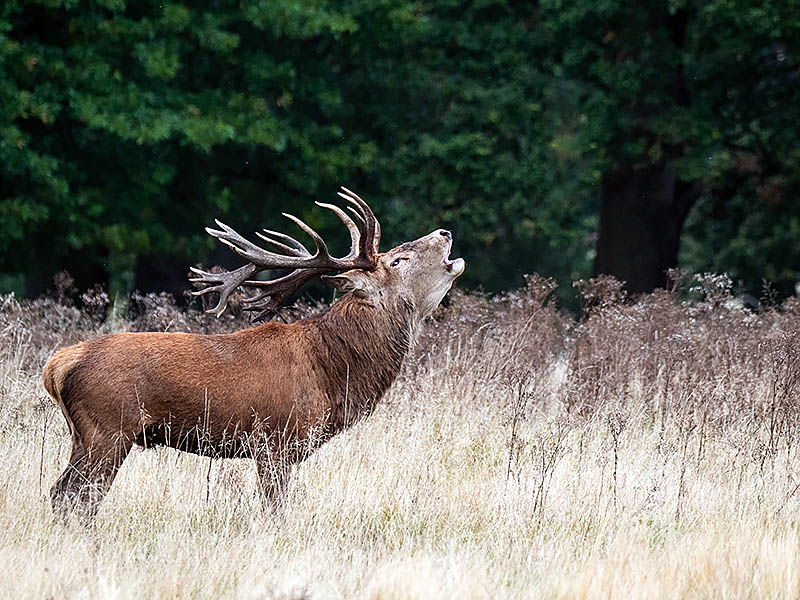Why nature is everyone’s business
Biodiversity is one of many issues organisations should consider when developing (or reviewing) sustainable business strategy. Many organisations have biodiversity-related dependencies and impacts stemming from their location, supply chains, products and services.
The term biodiversity can be confusing. Some ecosystems are inherently diverse while others are not. But the term is often used to represent the range and health of species and their ability to support ecosystems.
While we tend to think of ecosystems as something ‘other’ to our existence it is salutary to remember we need them too.
Work on planetary boundaries includes biodiversity loss as one of the main boundary categories. Of course, there are links and interdependence between the categories/domains.

World crashing the safe limit for biodiversity loss
This week (11 October 2021) the UK’s Natural History Museum (NHM) published the Biodiversity Trends Explorer Tool, partly to help parties at the CBD COP 15 (Convention on Biological Diversity’s Conference of Parties) conference to compare the situation in different countries.
While COP26 for climate change is making most of the news in the run-up to November’s big meeting in Glasow, a similar process runs for nature and biodiversity and is currently meeting online 11-15 October 2021. The UN Biodiversity Conference will also meet face-to-face in Kunming, China, from 25 April-8 May 2022.
BDD COP 15
The main tasks for the conference will be to review the performance of the CBD’s Strategic Plan for Biodiversity 2011-2020 and consider what’s needed for a future (post-2020) global biodiversity framework.
Biodiversity Trends Explorer provides a ‘Biodiversity Intactness Index’ that reveals the state of global biodiversity. Headlines include:
- Globally biodiversity intactness was 75% in 2020
- The UK’s intactness is just 53% placing it in the bottom 10% of countries worldwide and the lowest score in the G7.
What might this mean?
The Planetary Boundaries framework suggests that an intactness rating of around 90% is required to prevent an ecological recession, one that the UK appears to have already entered. This is perhaps unsurprising given the UK’s position as the birth of the industrial revolution and the fact that much of the UK’s land is under agriculture leaving little ‘semi-natural’ land or space for nature.
But why does this matter?
Will we simply see fewer plants, animal, insect and birds when we stray outside? Yes, this might be the result, but it’s far more important than that. Biological diversity underpins all life on earth, the earth’s ability to maintain ecosystems that provide us with clean water, food to eat and a stable climate.
Put simply. Ultimately there’s no air, water or food without diverse and functioning ecosystems.
What can businesses do about it?
Businesses have a vital role in driving innovation. Technology and business models need to have radically different relationships to the natural environment to those they have today. They need to be rejuvenative and restorative rather than damaging and extractive.
Some business leaders have recognised this and the importance of strong policy in this area, as demonstrated by an open letter from CEOs to heads of state calling for ‘a meaningful and actionable Global Biodiversity Framework’.
Over 1000 companies, employing more than 11 million people and representing annual turnovers of $4.7 trillion (USD) have signed Nature is Everyone’s Business’ call to action.
They (via Business for Nature) state simply that Nature is Everyone’s Business and call for states to commit to an equivalent of the Paris 1.5 degree climate target for biodiversity. This would include commitments to reverse nature loss by 2030 and to adopt ambitious and actionable targets.
Taking action on biodiversity in your business
For your organisation, your responsibility and ability to make meaningful changes will depend upon your relationship and dependence with and upon the natural world across three core components:
- the conservation of biological diversity
- the sustainable use of its components
- the fair and equitable sharing of benefits arising from use.
Business biodiversity checklist
This simple checklist can be used to screen areas of possible impact or dependency:
- Raw and processes materials throughout your supply chain
- Primary and secondary impacts arising from direct operations and those related to your upstream value chain
- Company property and real estate
- Procurement of goods and services
- Logistics and transport services
- Impact of products in use
- End of life for products
These can be used to develop an understanding of biodiversity:
- Use and dependencies
- Impacts arising from activities
- Related risks – to the organisation and from biodiversity related issues
- Value generated to the organisation and stakeholders.
Of course, factors such as risk go far beyond organisation or company direct or value chain activities.
As humans press ever deeper into natural areas, we further risk important ecosystems and open ourselves up to other risks such as pests and diseases. Covid-19 is thought to have been endemic in wild bat populations, crossing the species barrier into humans.
There are many further potential ‘zoonotic’ diseases but also great potential opportunities for exploring novel natural compounds and molecules with medial and other benefits.
Our way forward must be more rational, considered and sensitive to the other c. 8.7million (currently known) species that we share life on earth with. Only in that way can we stop being the cause of the mass global extinction of species and live in something closer to a ‘natural’ balance.

 Fossil fuel subsidies – pouring petrol on the climate fire?
Fossil fuel subsidies – pouring petrol on the climate fire?
Leave a Reply